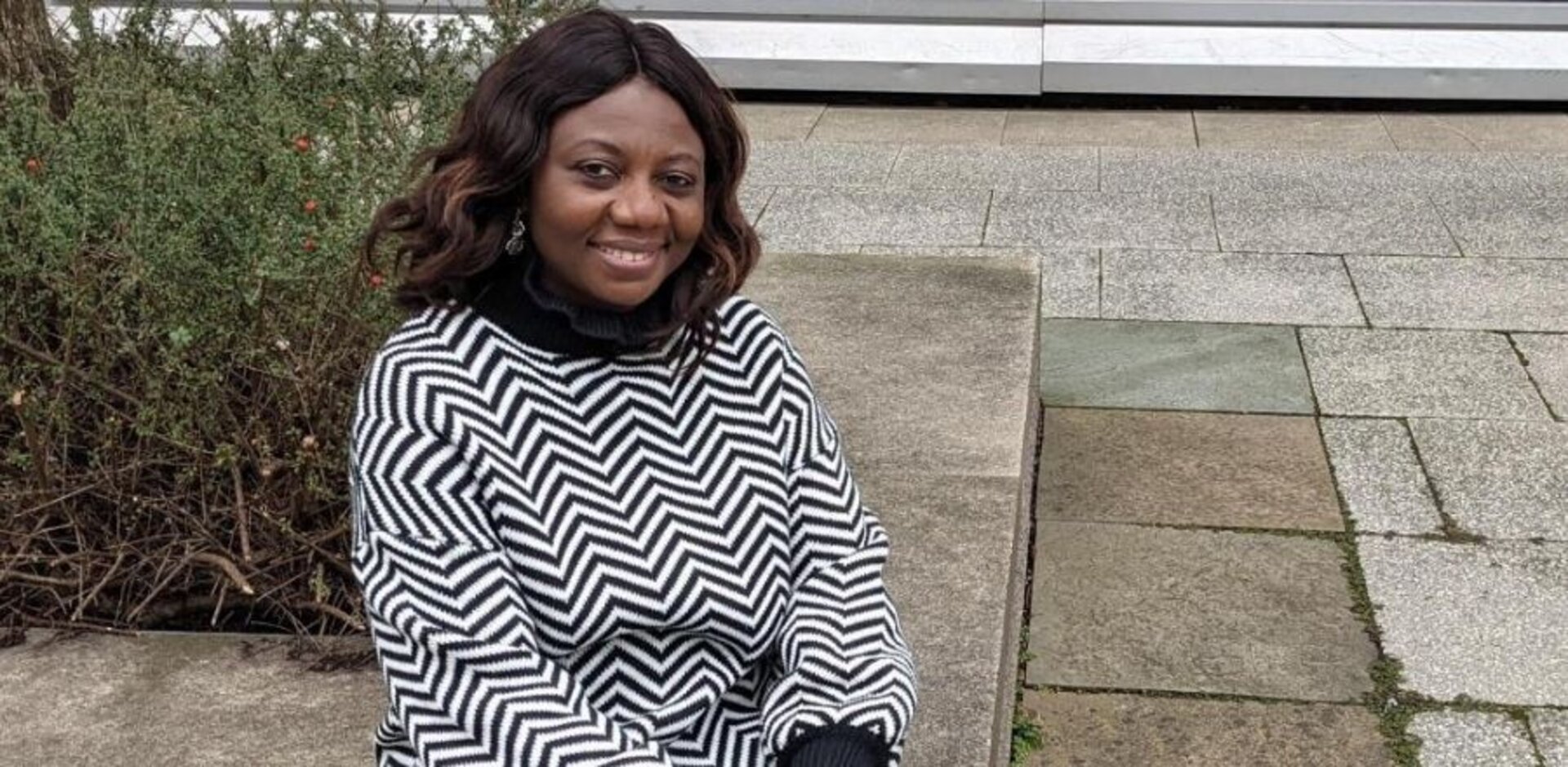Sandra Sobok International Day of Women and Girls in Science (STEM)

GCU is joining in on the celebrations for the International Day of Women and Girls in Science (STEM), giving us the opportunity to recognise our great students and the role they play in science and technology.
As part of the day, we spoke to MSc Electrical Power Engineering student Sandra Sobok, a passionate advocate of STEM awareness. After being encouraged to consider electronic engineering as a career, Sandra embarked on a successful journey in academia – and owes her thanks to the influence she had in her earlier years:
Firstly, could you tell us how you decided to study a career in Electrical Power Engineering?
"My mum and I always hoped I’d be a medical doctor as that was the most popular profession for girls in the sciences - I honestly never considered studying engineering. I’d never even heard of a female engineer.
I enrolled in a pre-degree programme hoping to study Geology as medicine wasn’t available in that university then. One day, a relative who was a lecturer in the Agricultural Sciences crazily suggested Electrical Engineering to me as it had more prospects than Geology. I was shocked at his suggestion and scared because there were no female engineers in my locality or anywhere near me for reference.
I applied and received an offer to study Electrical/Electronics Engineering, and my journey began. In a class of about 120 students, only about 10 were girls. I was scared of Electrical Power, so I chose the Electronics path in my final year because it seemed more “feminine.”
After graduation, I worked in a Telecom firm for five years and then moved to the electrical power sector, where I worked for another five years. I became confident enough to operate high-voltage equipment, sometimes alone in the station at midnight and in stormy weather.
My supervisor was understandably reluctant in allowing me to manage the power station alone at first, but he grew confident in me after I’d proven myself capable. After a while, I decided to upskill by pursuing a Master’s degree. First in Renewable and Sustainable Energy, and now Electrical Power Engineering."
Growing up, did you find that there were many opportunities to encourage young girls to consider STEM subjects?
"Growing up, the Girls in STEM campaign was non-existent. I was lucky to be encouraged by a man who was not stereotyped."
You’re obviously very passionate about STEM awareness. Could you give us some examples of work you have done to help promote STEM to young people; particularly females?
"When I checked the statistics, I realized that girls are underrepresented in STEM globally. I know I was scared of Engineering, and so are many other girls. There used to be this general stereotype that girls should study the soft arts while the boys explore the tough and rugged sciences. Thankfully, this is gradually changing across the globe.
I have visited some private Primary Schools on my own to “catch them young” before they join the old stereotypes. Most of these kids were shocked when I told them I was an Engineer as well as a female and mother.
My kids had attended these schools, so it was easy to approach and convince the management to allow me to talk to the kids. We had some basic science experiments to understand the force of gravity, the flow of electricity, and how to generate electrical charges on the hair. They were thrilled to conduct these experiments themselves. My kids’ school gave me a time slot on the last day of term to speak to both parents and students about the benefits of having more girls in STEM."
Why is it important to try and encourage young girls to get into STEM subjects?
"Firstly, it breaks the existing stereotype that science is too tough for girls. Secondly, several talents hidden in these girls must be discovered and refined. Despite the lack of support or encouragement that existed long ago, we still have computer software, thermal power generators, bullet-proof fibre, windshield wipers, caller ID and call-waiting, word processors, home security systems, dishwashers, central heating, and about a hundred other inventions from self-motivated women.
One can only imagine the number of innovations hidden inside these girls waiting for liberation. When these girls hear about or see women who have successfully studied a STEM subject and built a career, they will be encouraged to explore a STEM subject and develop any science-related ideas lingering in their minds."
By Rachael McAlonan
Got a SCEBE or GSBS story? Email me at Rachael.McAlonan@gcu.ac.uk or connect with me on social media.
